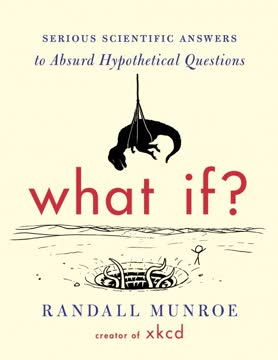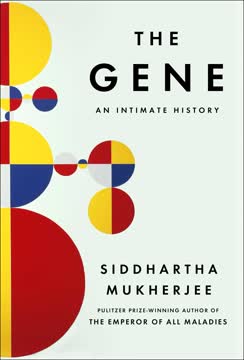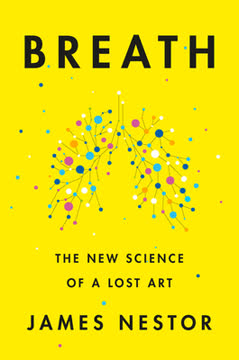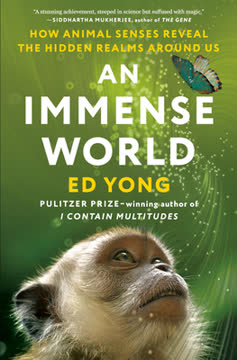つの重要なポイント
1. 人体:複雑さと効率の驚異
我々は柔軟でありながらも剛性を持つ。
精巧な設計。 人体は驚異的な工学の成果であり、数兆の細胞が調和して働いている。DNAの微視的なレベルから臓器やシステムの巨視的なレベルまで、すべての部分が生命維持に重要な役割を果たしている。
驚くべき統計:
- 37.2兆の細胞が協調して動作
- 脳には860億のニューロン
- 60,000マイルの血管
- 人体を構成する7オクティリオンの原子
効率と適応性。 その複雑さにもかかわらず、人体は驚くほど効率的である。自己治癒能力を持ち、さまざまな環境に適応し、意識的な努力なしに無数の機能を同時に実行することができる。心臓が絶え間なく血液を送り、免疫システムが侵入者と戦うなど、人体のシステムは完璧な同期を保ちながら私たちを生かし、繁栄させている。
2. 脳:最も驚異的で神秘的な器官
あなたは本当に驚異的です。しかし、同様に言えるのはミミズもです。
比類なき複雑さ。 重さわずか3ポンドの人間の脳は、宇宙で最も複雑な物体とされている。脳には、銀河系の星の数よりも多くのシナプス接続が存在する。
脳の主要な機能:
- 感覚情報の処理
- 随意運動の制御
- 不随意な身体機能の調整
- 記憶の保存と取り出し
- 感情や思考の生成
- 意識と自己認識の実現
未解明の謎。 何世紀にもわたる研究にもかかわらず、脳についてはまだ多くのことが未解明である。科学者たちは意識、記憶形成、神経ネットワークの複雑さを理解しようと努力している。脳の可塑性—自己再配線能力—は研究者たちを驚かせ続け、さまざまな神経疾患の治療に希望をもたらしている。
3. 免疫システム:複雑な防御機構
間違いなく、これは微生物の惑星です。我々は彼らの好意でここにいます。彼らは我々を全く必要としません。彼らがいなければ、我々は一日で死んでしまうでしょう。
絶え間ない警戒。 免疫システムは、細胞、組織、臓器が協力して有害な侵入者から体を守る複雑なネットワークである。自己と非自己を区別し、脅威を認識して排除しながら、健康な組織を損傷しないようにする必要がある。
主要な構成要素:
- 白血球(白血球)
- リンパ系
- 骨髄
- 胸腺
- 脾臓
バランスの取れた行動。 免疫システムは、活動不足(感染に対する脆弱性)と過活動(自己免疫疾患の発生)の間で微妙なバランスを取る必要がある。最近の研究では、体内および体表に生息する数兆の有益な微生物であるマイクロバイオームが免疫機能と全体的な健康をサポートする上で重要な役割を果たしていることが明らかになっている。
4. 消化システム:高度な処理工場
あなたのブラウニーは楽譜です。それを交響曲にするのはあなたの脳です。
複雑な旅。 消化システムは、食物を体が吸収して利用できる栄養素に分解する驚くほど効率的な処理工場である。この旅は口から始まり、肛門で終わり、その間に多くの臓器と酵素が関与する。
主要な消化器官:
- 口
- 食道
- 胃
- 小腸
- 大腸
- 肝臓
- 膵臓
- 胆嚢
多面的なプロセス。 消化は単なる機械的な分解ではなく、複雑な化学プロセスやさまざまなホルモンと酵素の相互作用を含む。消化管と脳の間の双方向の通信システムである腸脳軸は、気分から免疫機能に至るまで、全体的な健康と幸福に重要な役割を果たしている。
5. 心臓と循環システム:体の疲れ知らずのエンジン
生涯にわたって心臓が行う仕事量は、1トンの物体を150マイル空中に持ち上げるのに十分な量と計算されています。
絶え間ない活動。 拳ほどの大きさの筋肉質の臓器である心臓は、1日に約100,000回拍動し、約60,000マイルの血管を通じて血液を送り出す。この複雑なネットワークは、体のすべての細胞に酸素と栄養を届け、老廃物を除去する。
循環システムの構成要素:
- 心臓
- 動脈
- 静脈
- 毛細血管
- 血液(赤血球、白血球、血小板、血漿)
重要な液体。 血液は単なる輸送媒体ではなく、血液凝固による出血防止、感染との戦い、体温調節など多くの機能を持つ複雑な組織である。血液の組成は、個人の全体的な健康状態について貴重な洞察を提供することができる。
6. 呼吸システム:外界との重要なリンク
今、周りを見てください。目は毎秒1000億の信号を脳に送っています。
絶え間ない交換。 呼吸システムは、体と環境の間でガスの重要な交換を促進する。呼吸ごとに酸素を取り入れ、二酸化炭素を排出する。このプロセスは細胞代謝と生命そのものに不可欠である。
主要な呼吸器官:
- 鼻と鼻腔
- 咽頭
- 喉頭
- 気管
- 気管支
- 肺
呼吸以上の役割。 呼吸システムは単に呼吸を可能にするだけでなく、血液のpHを調整し、音声の生成を助け、嗅覚にも関与する。肺の複雑な設計は、数百万の小さな気嚢(肺胞)を持ち、ガス交換のための広大な表面積を提供する。完全に拡張された場合、その表面積はテニスコートの大きさに相当する。
7. がん:体の自己反逆
許可のない自殺です。
細胞の反乱。 がんは、体内の細胞が制御不能に成長し、分裂し始めるときに発生し、しばしば腫瘍を形成し、他の部分に広がる。これは単一の病気ではなく、共通の特徴を持つ一群の病気である。
がんの特徴:
- 持続的な増殖シグナル
- 成長抑制因子の回避
- 細胞死への抵抗
- 無限の複製能力の獲得
- 血管新生の誘導
- 侵襲と転移の活性化
複雑な挑戦。 がん治療は困難である。なぜなら、がん細胞は基本的に我々自身の細胞が暴走したものであり、検出を回避し、治療に抵抗するように進化することができるからである。しかし、がん生物学、免疫療法、標的療法の理解が進むことで、この病気との戦いに新たな希望がもたらされている。
8. 感染症:現代世界の古代の敵
病気があらゆる悪い方向に進んだ場合に何が起こるかを想像したいなら、天然痘のケースを考えるのが最適です。
持続する脅威。 医学の驚異的な進歩にもかかわらず、感染症は依然として重大な世界的健康問題である。結核のような古代の災厄からCOVID-19のような新たな脅威まで、病原体は進化し適応し続け、人間の健康に対するリスクをもたらしている。
感染性病原体の種類:
- 細菌
- ウイルス
- 真菌
- 寄生虫
- プリオン
グローバルな相互接続。 ますますつながりのある世界では、病気は大陸を越えて急速に広がることができる。この相互接続性は、病気の制御に新たな課題をもたらすが、研究と対応のための国際協力も促進する。ワクチン、改善された衛生状態、抗生物質は多くの感染症の影響を劇的に減少させたが、抗生物質耐性と新たな病原体の出現は依然として重大な懸念事項である。
9. 骨格と筋肉:運動と強さのためのフレームワーク
骨は強化コンクリートよりも強く、それでいてスプリントできるほど軽い。
工学の驚異。 206本の骨からなる人間の骨格システムは、構造を提供し、重要な臓器を保護し、運動のためのフレームワークを提供する。骨は不活性な構造ではなく、ストレスや栄養要因に応じて絶えず再構築される生きた組織である。
筋骨格系の構成要素:
- 骨
- 関節
- 靭帯
- 腱
- 筋肉
協調的な動作。 筋肉は骨格システムと協力して、書くために必要な精密な制御から重い物を持ち上げるための力まで、広範な動作を可能にする。骨、関節、筋肉の相互作用は、安定性と柔軟性の両方を可能にし、人間の移動と器用さにとって重要なバランスを提供する。
10. 睡眠:体と心のための必須のリセット
睡眠が絶対に重要な機能を果たしていないなら、それは進化の過程で最大の誤りです。
神秘的な必要性。 我々の人生の約3分の1を睡眠に費やしているにもかかわらず、睡眠の正確な目的は依然として不明である。しかし、その重要性は否定できず、認知機能から身体の健康、感情的な幸福に至るまで影響を与える。
睡眠の段階:
- ノンレム睡眠ステージ1(浅い睡眠)
- ノンレム睡眠ステージ2(深い睡眠)
- ノンレム睡眠ステージ3(深い睡眠)
- レム(急速眼球運動)睡眠
多面的な利益。 睡眠は記憶の統合、学習、感情の調整、身体の回復に重要な役割を果たす。また、健康な免疫システムの維持や代謝の調整にも不可欠である。慢性的な睡眠不足は、心血管疾患、肥満、精神的な健康障害など、さまざまな健康問題と関連している。
11. 生殖:新しい生命を創造する奇跡
ライフスタイルによる自殺は時間がかかる。
複雑なプロセス。 人間の生殖は、生殖細胞の生成から胎児の発育、そして出産という奇跡的な出来事まで、数多くのシステムとプロセスの正確な調整を必要とする驚異的な生物学的工学の成果である。
生殖の主要な段階:
- 配偶子形成(精子と卵の生成)
- 受精
- 胚発生
- 胎児の成長
- 出産
生物学を超えて。 生殖は基本的に生物学的なプロセスであるが、社会的、文化的、心理的な要因と深く結びついている。生殖技術の進歩は親になる可能性を広げる一方で、新たな倫理的な問題も提起している。エピジェネティクスの研究は、妊娠中や幼少期の環境要因が遺伝子発現や長期的な健康結果にどのように影響するかを明らかにし、妊娠前および幼少期のケアの重要性を強調している。
12. 皮膚:保護バリアと感覚インターフェース
あなたは巨大です。平均的な男性なら消化管は約40フィートの長さがあり、女性なら少し短いです。
多機能な器官。 皮膚は我々の最大の器官であり、環境に対する保護バリアとして機能するだけでなく、体温調節、感覚、ビタミンDの合成などの重要な役割も果たしている。皮膚は複数の層から構成され、それぞれが特定の機能を持っている。
皮膚の主要な機能:
- 病原体や物理的損傷からの保護
- 体温の調節
- 触覚、圧力、温度の感知
- ビタミンDの合成
- 耐水性
強靭で再生可能。 皮膚は常に再生しており、最外層は2〜4週間ごとに完全に置き換えられる。この再生能力により、傷の治癒や環境ストレスへの適応が可能となる。皮膚はまた、多様なマイクロバイオームを持ち、皮膚の健康を維持し、有害な病原体から保護する上で重要な役割を果たしている。
最終更新日:
FAQ
What's The Body: A Guide for Occupants about?
- Exploration of Human Anatomy: Bill Bryson provides a comprehensive overview of the human body, detailing its structure and functions. The book covers various systems, from the skin to the brain, explaining how they work together.
- Humorous and Informative Style: Bryson combines humor with scientific facts, making complex topics accessible and engaging. His narrative style invites readers to appreciate the intricacies of their own bodies.
- Interconnectedness of Systems: The book emphasizes how different bodily systems are interrelated, showcasing the intricate balance that sustains life.
Why should I read The Body: A Guide for Occupants?
- Unique Perspective on Biology: Bryson offers a fresh take on human biology, blending personal anecdotes with scientific insights, making the subject relatable.
- Educational Value: Readers will gain a deeper understanding of how their bodies function, which can lead to better health awareness and informed lifestyle choices.
- Engaging Storytelling: Bryson's humorous and conversational tone makes complex scientific concepts enjoyable to read, keeping readers engaged throughout.
What are the key takeaways of The Body: A Guide for Occupants?
- Complexity of the Human Body: The book illustrates that the human body is a marvel of evolution, composed of intricate systems that work in harmony.
- Importance of Microbes: Bryson discusses the role of microbes in our bodies, highlighting their significance in digestion and overall health.
- Health Awareness: Understanding how the body functions can empower individuals to make informed health decisions and appreciate their health.
What are the best quotes from The Body: A Guide for Occupants and what do they mean?
- "You are truly a wonder.": This quote encapsulates Bryson's admiration for the human body and its capabilities, serving as a reminder of our extraordinary nature.
- "The miracle of human life is not that we are endowed with some frailties but that we aren’t swamped with them.": Bryson highlights the resilience of the human body despite its imperfections.
- "The only thing special about the elements that make you is that they make you.": This quote reflects on the fundamental nature of human existence, emphasizing our uniqueness.
How does Bill Bryson explain the brain in The Body: A Guide for Occupants?
- Complexity and Functionality: Bryson describes the brain as "the most extraordinary thing in the universe," highlighting its complexity and vast information processing capabilities.
- Energy Consumption: The brain, while only 2% of body weight, consumes about 20% of our energy, showcasing its efficiency.
- Mysteries of Consciousness: Despite extensive research, many aspects of the brain remain mysterious, particularly consciousness and memory.
What insights does The Body: A Guide for Occupants provide about the immune system?
- Defense Mechanism: Bryson describes the immune system as a complex network that protects the body from pathogens, emphasizing its importance in maintaining health.
- Role of White Blood Cells: White blood cells are crucial for immune responses, identifying and attacking invaders, highlighting their significance in our overall health.
- Balance and Functionality: The immune system maintains a delicate balance, ensuring it responds appropriately without overreacting.
How does Bill Bryson address the topic of sleep in The Body: A Guide for Occupants?
- Essential Function: Bryson highlights sleep as a vital process for overall health and well-being, essential for processes like memory consolidation and hormonal balance.
- Sleep Cycles: The book explains the different stages of sleep, including REM and non-REM sleep, and their significance in restorative functions.
- Sleep Disorders: Bryson addresses common sleep disorders, such as insomnia and sleep apnea, and their effects on health.
What does The Body: A Guide for Occupants reveal about the digestive system?
- Complex Process: Bryson describes the digestive system as a complex network that breaks down food and absorbs nutrients, showcasing the intricacies of digestion.
- Role of Microbes: The importance of gut microbes in digestion and overall health is highlighted, noting their role in breaking down food and producing essential vitamins.
- Connection to Health: The book discusses the link between digestion and various health issues, including obesity and diabetes.
How does Bill Bryson explain the significance of skin in The Body: A Guide for Occupants?
- Largest Organ: Bryson emphasizes that skin is the largest organ of the body, serving multiple functions, including protection and sensory roles.
- Self-Repairing Ability: The skin's remarkable ability to repair itself after injury is discussed, reflecting on its aesthetic and functional importance.
- Microbial Ecosystem: Bryson explores the diverse microbial ecosystem present on the skin, illustrating the complexity of our skin's microbiome.
What does The Body: A Guide for Occupants say about the role of diet in health?
- Impact of Nutrition: Bryson emphasizes the importance of a balanced diet for maintaining health and preventing diseases, highlighting the body's resilience despite poor dietary choices.
- Cultural Eating Habits: The book explores how cultural habits influence diet and health outcomes, reflecting on changing dietary practices.
- Connection to Disease: Bryson discusses the link between diet and various health issues, including diabetes and heart disease.
How does Bill Bryson address the concept of aging in The Body: A Guide for Occupants?
- Biological Aging: Bryson explores the biological processes that contribute to aging, including cellular damage and hormonal changes.
- Health Implications: The importance of maintaining health as we age is emphasized, noting that lifestyle choices can significantly influence the aging process.
- Research on Aging: Bryson highlights ongoing research into the biology of aging and potential interventions to improve health in later life.
What are some common misconceptions about the body discussed in The Body: A Guide for Occupants?
- Misunderstanding of Body Functions: Bryson addresses myths about how the body works, such as the belief that we only use 10% of our brains.
- Dietary Myths: The book debunks common dietary misconceptions, explaining the differences between types of fats and their roles in health.
- Health and Longevity: Bryson challenges the notion that certain lifestyle choices guarantee health or longevity, emphasizing the role of genetics and other factors.
レビュー
本書『人体:居住者のためのガイド』は、人間の解剖学を魅力的かつ情報豊かに探求している点で高く評価されている。ブライソンの特徴的なウィットとわかりやすい文体は、複雑なトピックを理解しやすく、興味深いものにしている。読者は、科学的事実、歴史的逸話、医療の発見が巧みに組み合わされている点を評価している。本書は、さまざまな身体システム、病気、健康問題を取り上げ、人間の生理学の既知および未知の側面について洞察を提供している。一部の読者は特定のセクションを繰り返しや不快に感じることがあったが、ほとんどの人は啓発的で楽しめる読書体験として推奨している。
Similar Books




















